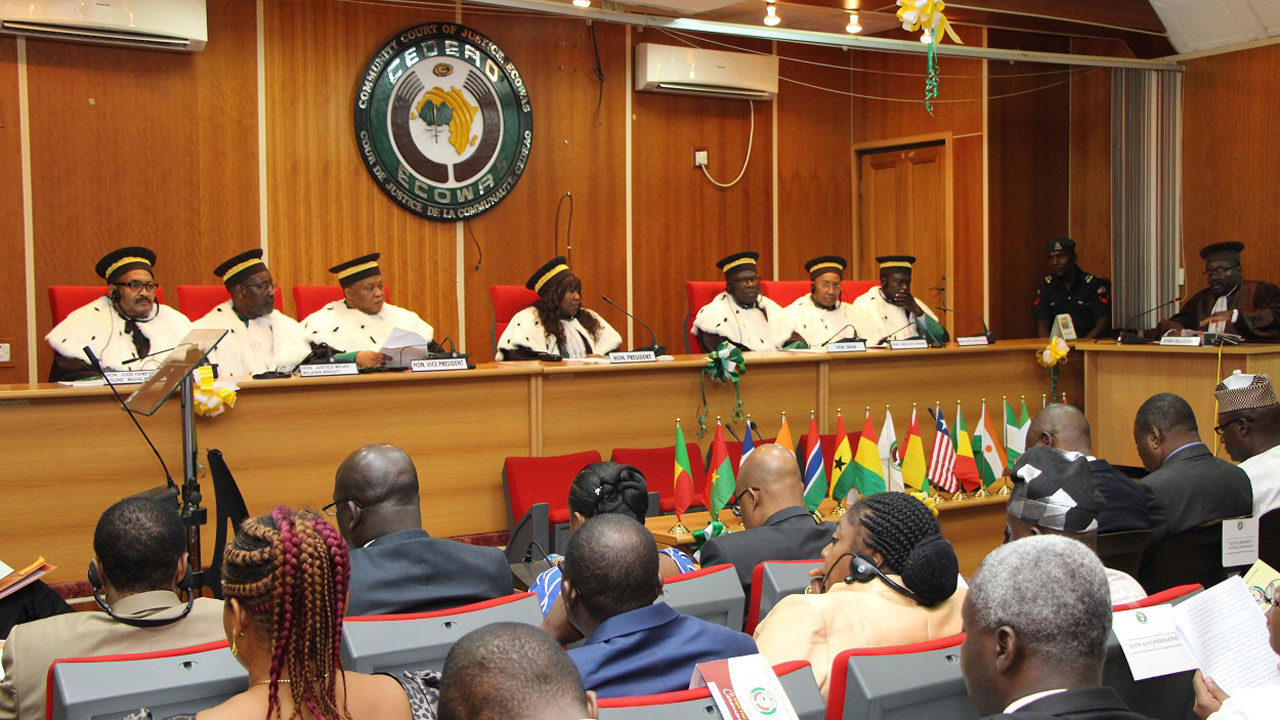ECOWAS Court Of Justice Elects New Leadership

The ECOWAS Court of Justice (CCJ) has appointed Cape Verde’s Ricardo Gonçalves as its new President, alongside Sierra Leone’s Sengu Koroma, who has been elected as the Vice President. Both leaders will serve non-renewable four-year terms.
The election was conducted by the court’s college of five judges and was officiated by Guinea-Bissau’s President, Umaro Embalo, who previously served as the chairman of the ECOWAS Authority of Heads of State and Government.
Mr. Gonçalves succeeds Edward Asante, who presided over the CCJ for six years. Mr. Koroma takes over from Ivory Coast’s Gberi-bè Ouattara as vice president. Notably, Mr. Asante has been recommended for a position on Ghana’s Supreme Court but will continue to serve as a judge of the CCJ until the end of his extended tenure in 2026.
Under Mr. Asante’s leadership, the CCJ experienced significant advancements in its jurisprudence, case management system, and physical infrastructure. He oversaw the relocation of the court from its former overcrowded premises to a new complex in Gudu District, Abuja, completed in 2023.
Additionally, Mr. Asante introduced an electronic case management system that transformed court operations, allowing for seamless virtual and physical sessions. This innovation has made it easier for applicants from ECOWAS member states to file applications, attend hearings, and receive judgments, significantly reducing financial burdens on users.
Reflecting on his tenure, Mr. Asante described his experience as “worthwhile” and a “privilege to serve the community.” He emphasized the insights gained regarding the importance of respecting the community’s existing instruments, especially in relation to human rights, accountability, and transparency.
In his inaugural address, Mr. Gonçalves outlined his vision for the court, emphasizing the pillars of responsibility and dialogue. He reiterated the necessity of upholding the court’s mission as an independent, reliable, efficient, and accessible institution. Furthermore, he pledged to foster ongoing dialogue with ECOWAS institutions, agencies, member states, and civil society while ensuring prudent management of ECOWAS funds.

